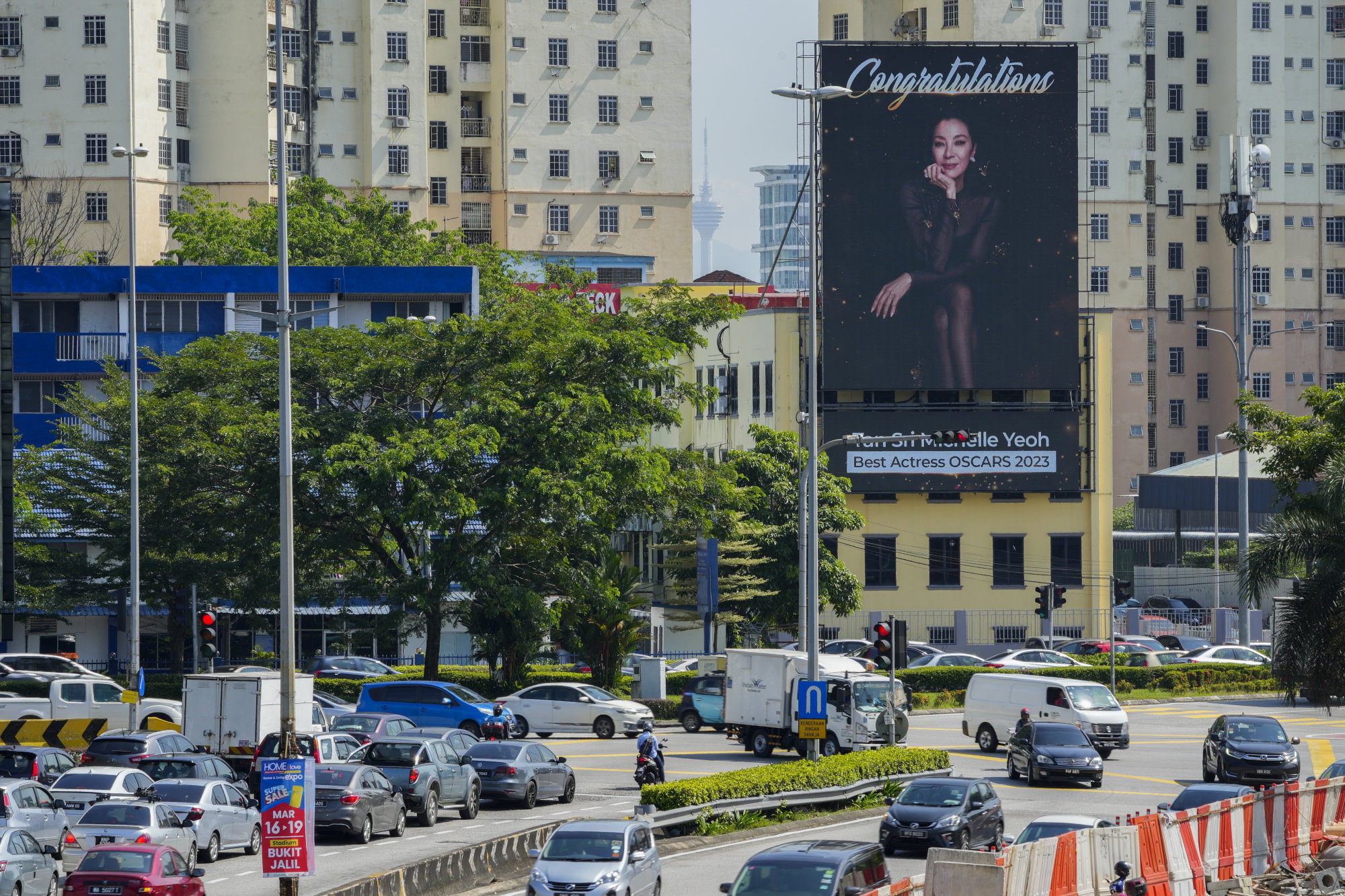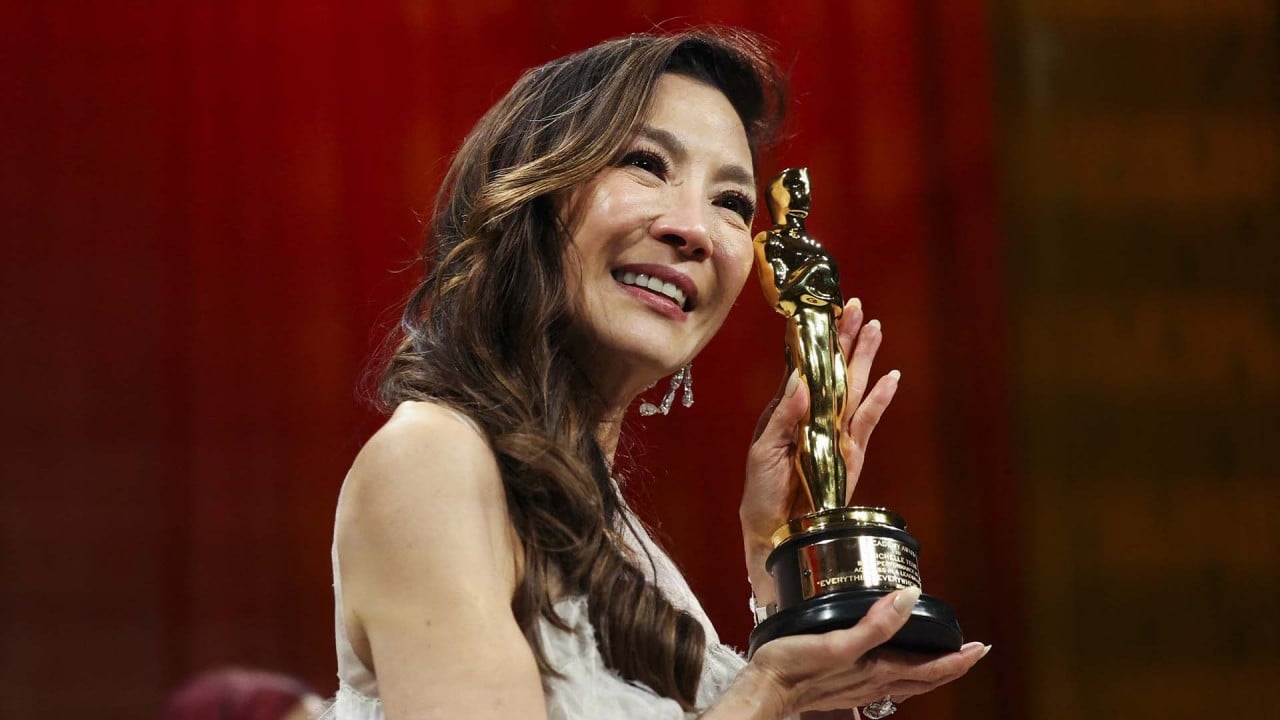
Age but a number as Malaysia’s women bask in Michelle Yeoh’s Oscar win
- Gender parity is still very much a work in progress in Malaysia, and much of Southeast Asia, despite a relatively narrow estimated wage gap
- Malaysia’s law minister says the nation tends to only celebrate its own when they achieve global success, even as many others become respected leaders across industries
And Yeoh’s breakthrough Oscar win at 60 years old – “Ladies, don’t let anyone tell you you’re past your prime,” she said on the night – carries a clear, irrefutable message on the power of middle age.
“Age is not a barrier. The fact of the matter is that a woman’s win is usually so much harder fought, and we don’t take these things for granted,” Begum said.
“It doesn’t matter if you’re white, black, yellow, green … a win for a woman is a win for womankind.”
The significance of the win was not lost on her. She described the accolade as a “beacon of hope and possibilities” for people of colour, while also proving a point that age is not an indicator of a woman’s ability to achieve success.
But there is a huge gulf in representation at the top level, with women accounting for just 24 per cent of legislators, senior officials and managers. That proportion plummeted to 14.9 per cent when it came to parliamentary representation.
Asia can celebrate progress in women’s rights, but much is left to do
Opportunities also tend to take a nosedive outside urban settings, as women in many cases are expected to manage the home and children, leaving them with little time or energy for personal development.
Begum, 54, said she felt that Yeoh’s win was a mirror for countless successful women who labour with a laser focus to achieve their goals while holding on to hope, faith and perseverance.
“Women choose to be extraordinary because women have no choice. We cannot be skimming on the surface,” she said.
“Every barrier is an opportunity. If I don’t push forward, it’s mine to give up. If I don’t try, I’m giving up to another man who has a certain square for how to look at it.”
Steely determination
Yeoh’s long journey to Hollywood stardom began with a back injury in her teens, which ended her dream of becoming a ballet dancer. In 1983, she was crowned Miss World Malaysia, which was a launch pad into Hong Kong’s vibrant, hyper competitive cinema scene.

Her star rose higher in 2000 when she was cast in the martial arts blockbuster Crouching Tiger, Hidden Dragon.
Yeoh’s gumption in taking on the boys at their own game is something that resonates with Law Minister Azalina Othman Said.
Azalina has been a political trailblazer, having once served as Malaysia’s deputy speaker and holding several ministerial portfolios in the past, and believes that she and Yeoh share the values of “sheer hard work, perseverance and tenacity” to get where they are now.
“Yes, there may be times when being the only woman in a room raises eyebrows, but it is a seat at the table that was earned, not given,” Azalina told This Week in Asia.
“What one brings to the table is most important, and I know what women like Yeoh and I bring to the table carries weight.”
Malaysian woman minister says OK for men to use ‘firm touch’ on ‘stubborn wives’
Glass ceiling
Azalina, 59, acknowledged that Malaysia has a tendency to only celebrate its own when they achieve global success – such as in Yeoh’s case – even as many other women have risen to become respected leaders in their respective industries.
The lack of recognition at home, coupled with constrictive rules imposed by the authorities, is something that veteran actress Susan Lankester says has left the local talent bereft of chances to further their craft.
Lankester said Malaysians were “just hitching a ride” on Yeoh’s success, without giving much thought to the fact that she had to leave the country in search of opportunities to grow her career.

“But the thing is that she fought and worked really hard to get where she did and we are all fighting as well,” Lankester said.
“Our battles need to be seen and I don’t know whether they are being seen. Or maybe we’re not the right people that are being recognised. I don’t know.”
Lankester said she has decided to rub it in the face of those who think older ladies are past their prime and prove that they “still have a lot to give to the industry”.
“This year, I’m going to pitch for a grant – fingers crossed. I really want to produce something, it’s on my bucket list. I want to be an executive producer, and produce my first feature film for Malaysia,” said Lankester, who, like Yeoh, recently turned 60.



